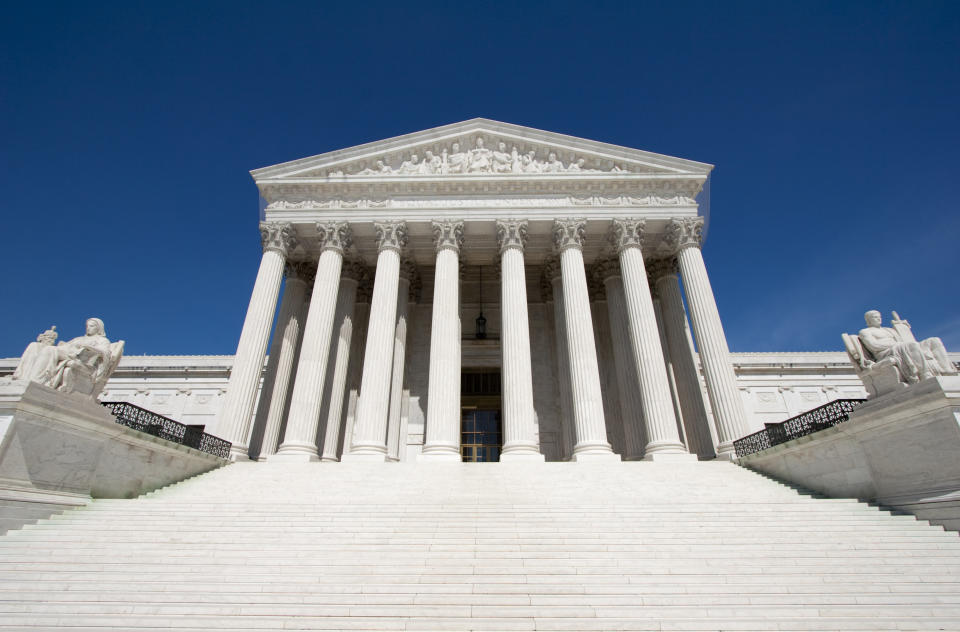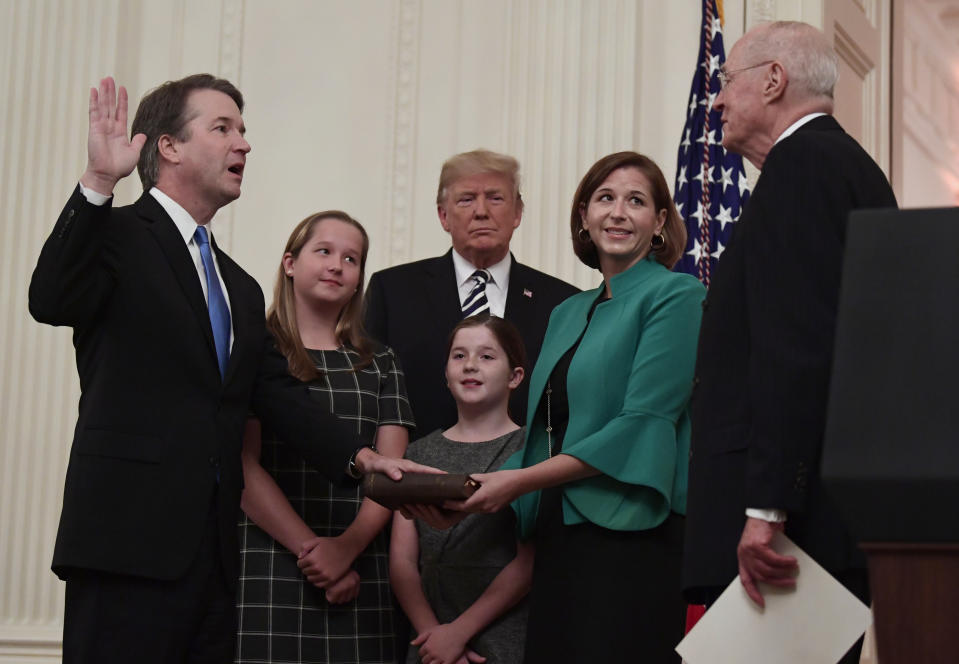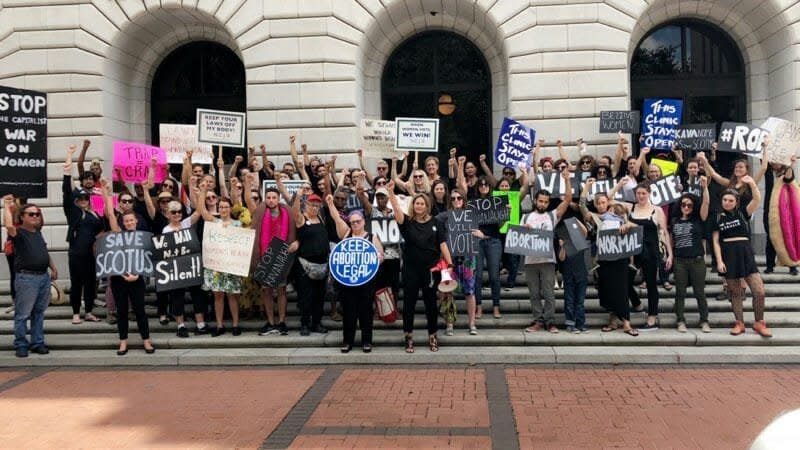Louisiana law could be first abortion case heard by new SCOTUS
The pro-choice group Center for Reproductive Rights is filing its petition with the Supreme Court Wednesday requesting that the court hear and strike down a Louisiana law that the group says would make abortion virtually impossible to obtain in the state. The law, Act 620, would require physicians performing abortions to have admitting privileges at a hospital within 30 miles of their clinics.
In February, the court temporarily blocked the law from going into effect after an emergency request was filed by CRR. The group says that if the law is permitted to stand it will shut down two of the remaining three clinics in Louisiana.
“Today, we asked the Supreme Court to step in to stop Louisiana from blatantly ignoring the Court’s most recent ruling on abortion rights. In 2016, the Court was crystal clear that states may not use medically unjustified restrictions to shut down abortion clinics,” said Nancy Northup, President and CEO of the Center for Reproductive Rights. “The stakes in this case couldn’t be higher for Louisiana women, where abortion access is hanging by a thread. If states are allowed to disregard Supreme Court decisions, the constitutional protections of Roe v. Wade are in peril.” CRR Press Release

Restrictive state abortion laws intended to provoke a challenge that could lead the Supreme Court to overturn Roe v. Wade have picked up speed since the confirmation of Justice Brett Kavanaugh gave the high court a presumed anti-abortion majority.
Since January, more than 300 anti-abortion bills have been introduced in state legislatures, with many of those directly challenging existing court rulings protecting abortion rights.
There are two possible paths for abortion foes. The first is to prompt an out and out rescinding of Roe. Six states have passed so called “fetal heartbeat” bills, which ban abortion after the sixth week of pregnancy — before most women even know they are pregnant. In total, the number of such laws introduced at the state level this year has increased 63 percent from the year before. To uphold these bills would mean directly overturning Roe, which allowed for the procedure until the point of viability, which at the time was considered the start of the third trimester.
The second is to leave Roe in place, but add so many regulations that access is effectively impossible for most women. It is one such bill – Act 620 in Louisiana – that is likely to be the first piece of abortion legislation to reach the court since Kavanaugh replaced the swing vote on reproductive rights, Justice Anthony Kennedy.

Rather than aiming at the right to abortion itself, Act 620 is what is known as a TRAP law – targeted regulation of abortion providers. For decades these laws, creating obstacles such as mandatory waiting periods, ultrasounds, counseling, fees and licensing requirements, have made abortion more difficult and steadily reduced the number of clinics in the country. CRR senior counsel T.J. Tu told Yahoo News, “This is a very well calculated strategy pursued over decades, and we're now up to over 400 laws throughout the country.”
In 2014, Act 620 passed and was signed into law by Louisiana Gov. Bobby Jindhal. The law was immediately challenged by CRR, which said it placed an undue burden on abortion providers. “Hospitals give admitting privileges to doctors who send them lots of patients. It's a business relationship. Abortion providers don’t send patients to hospitals because the procedure is so safe,” Tu says.
The bill was introduced by Democratic state Rep. Katrina Jackson, who told Yahoo News, “When I ran for office I told everyone that I'm going to pray, I'm going to hear from God, I'm going to let my Christian values direct me.” When asked if she stands with President Trump on abortion, she said, “Although the president and I disagree on a number of issues, trust me. I do support his stance on abortion and being pro-life.”
Before Act 620 was passed, there were three clinics in Louisiana, down from seven in 2006, requiring many patients to travel long distances and incur the expenses of transportation, childcare and lodging. “Supporters of laws like Act 620 say this is all about women's health, and that's just a lie. These laws are about shutting down clinics,” Tu says.
Amy Irvin, executive director of the New Orleans Abortion Fund, told Yahoo News, “I’ve testified on many bills in front of many of the same legislators. I don't think that they really appreciate both the need for abortion as health care, but also the impact these restrictions have on specific communities. Restrictions like these impact marginalized communities, women of color, immigrant women, youth the most.”

Upholding the legislation would not mean overturning Roe, but would mean overturning precedent. The court has repeatedly rejected as unconstitutional regulations that would constitute an “undue burden” on women seeking abortion access. Three years ago the court struck down a Texas law that was almost identical to the current Louisiana one on the grounds that the licensing requirements presented such an “undue burden” in that they limited access with no apparent benefit to the health or safety of the patient. Should the current justices rule otherwise in this case, they would effectively usher in a post-Roe world without actually overturning Roe.
Video Produced by Samantha Feltus

